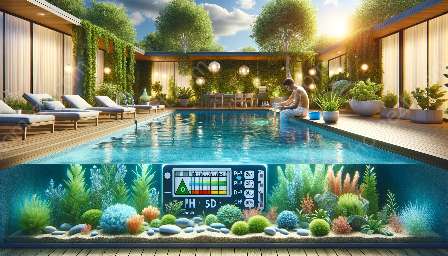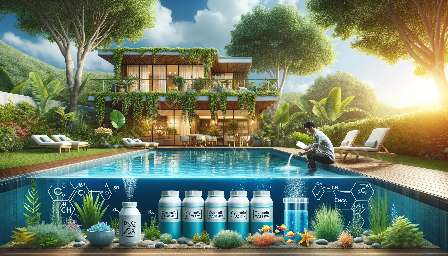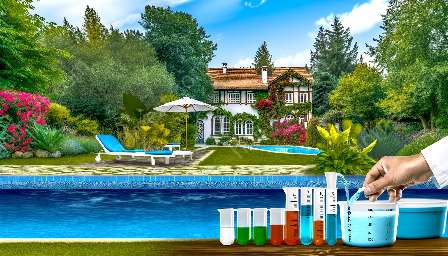Sanitizing agents play a crucial role in maintaining the cleanliness and safety of swimming pools and spas. These chemicals are essential for killing harmful bacteria, viruses, algae, and other contaminants that can thrive in water environments.
The Science of Sanitizing Agents
Sanitizing agents work by destroying or neutralizing microorganisms and contaminants present in the pool or spa water. Chlorine, bromine, and hydrogen peroxide are common examples of sanitizing agents used in water treatment processes. Each of these agents has distinct properties, and their effectiveness depends on factors such as pH levels, temperature, and the presence of other chemicals in the water.
Water Chemistry and Sanitizing Agents
Understanding the chemistry of water is essential for effectively using sanitizing agents. Water chemistry refers to the balance of various chemical components in the water, including pH, total alkalinity, calcium hardness, and stabilizer levels. Maintaining proper water chemistry is critical for the optimal performance of sanitizing agents. For instance, maintaining the appropriate pH level ensures that chlorine remains active and effective in killing contaminants, while also preventing skin and eye irritation for swimmers.
Best Practices for Using Sanitizing Agents in Swimming Pools and Spas
Proper application and maintenance of sanitizing agents are essential for ensuring the safety and cleanliness of swimming pools and spas. Pool and spa owners should follow manufacturer guidelines for the correct dosage and application of sanitizing agents. Regular testing of water chemistry is necessary to monitor the sanitizing agent levels and make adjustments as needed. It's also important to consider the impact of environmental factors, such as sunlight, temperature, and bather load, on the effectiveness of sanitizing agents.
How Sanitizing Agents Keep Swimming Pools and Spas Safe
By effectively using sanitizing agents and understanding water chemistry, pool and spa owners can create a safe and enjoyable swimming environment. Proper sanitation prevents the spread of waterborne illnesses and ensures that the water is free from harmful microorganisms. Additionally, maintaining clean and well-balanced water chemistry enhances the overall experience for swimmers, providing crystal-clear water that is both inviting and hygienic.
In summary, sanitizing agents are indispensable for the maintenance of swimming pools and spas. When used in conjunction with a solid understanding of water chemistry and best practices for application, these agents play a vital role in ensuring clean, safe, and enjoyable aquatic environments.



















